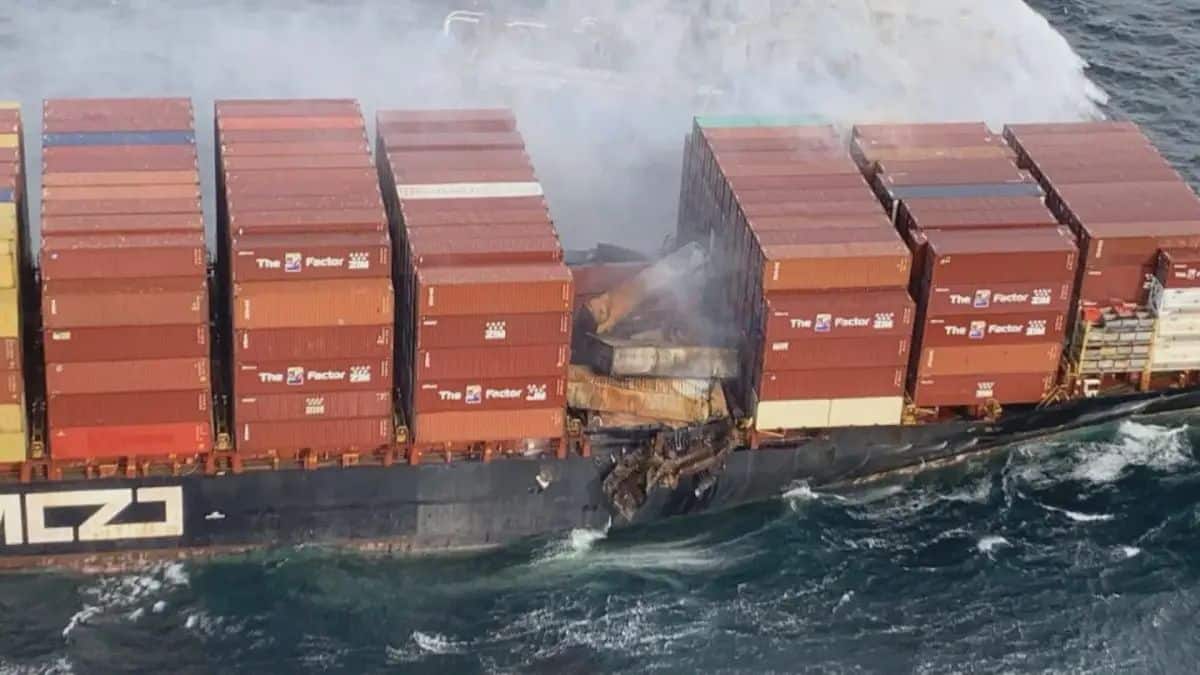The Transportation Safety Board of Canada (TSB) has voiced significant concerns about the nation’s marine emergency preparedness following its investigation into the 2021 loss of containers and subsequent fire aboard the containership ZIM Kingston. This incident, which took place off Vancouver Island, British Columbia, has exposed critical deficiencies in Canada’s ability to manage marine emergencies.
On October 21, 2021, the ZIM Kingston, managed by Danaos Shipping and chartered by ZIM, lost 109 containers overboard due to severe parametric rolling while drifting in heavy weather near the Juan de Fuca Strait. The ship, carrying 21 crew members, experienced further calamity when a fire broke out in a damaged container holding hazardous materials approximately 36 hours later. The blaze, which spread to adjacent containers, took five days to extinguish while the vessel was anchored off Victoria, BC.
The TSB investigation identified parametric rolling as the cause of the container loss. Although the industry generally has access to guidance on identifying the risk of parametric rolling, this material was not available on the ZIM Kingston. The investigation also pointed to inconsistencies and inadequacies in bridge crew training and the implementation of procedures and tools to manage such risks. While the International Maritime Organization is working to update industry guidance, the process is expected to take time.
TSB Chair Kathy Fox emphasized the necessity for more thorough and current guidance to avoid ineffective or missing company policies, procedures, tools, and training for managing parametric rolling. The investigation also brought to light Canada’s challenges in handling marine emergencies that require additional assistance. Unlike the United States, Canada does not have mandatory pre-arranged emergency response plans, and the Coast Guard lacks marine fire response and suppression capabilities.
In the case of the ZIM Kingston, the emergency response was initiated mainly by fortunate circumstances, including pre-arrangements by the vessel’s manager and the presence of two adequately equipped anchor handling tugs, Maersk Tender and Maersk Trader, present in the vicinity. Fox emphasized that such luck is not a sustainable emergency preparedness strategy.
Following amendments to the Canada Shipping Act, of 2001, regulations regarding emergency arrangements for vessels are now possible. However, Transport Canada’s rules requiring emergency response arrangements are not expected until 2028. Fox stressed the urgency of addressing these gaps more swiftly, citing the risks to vessels, the environment, and public health and safety.
The TSB’s investigation resulted in two safety concerns: the risk of parametric rolling leading to container loss and the inadequacies in Canada’s preparedness for marine emergency response. These findings underscore the need for urgent and effective action to bolster marine emergency management in Canadian waters.

